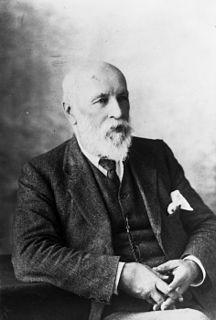
The Rātana movement is a church and pan-iwi political movement founded by Tahupōtiki Wiremu Rātana in early 20th-century New Zealand. The Rātana Church has its headquarters at the settlement of Rātana pā near Whanganui.
Piri Wiri Tua Movement is a Māori political party in New Zealand associated with the Ratana movement. The name "Piri Wiri Tua" was sometimes used by the religion's founder, Tahupotiki Wiremu Ratana, and means The Campaigner. A literal translation is Billy Bore Through or stick fast and bore to the other side.
New Zealand's Top 100 History Makers was a weekly television programme first shown on Prime Television New Zealand on 6 October 2005. 430 notable New Zealanders were ranked by a panel to determine the 100 most influential in New Zealand history. There were six episodes to present the list, and a final (seventh) episode, screened live on 17 November 2005, showed the rankings of the top ten of these people as a result of votes collected from the public via text and internet..

Tahupōtiki Wiremu Rātana was the founder of the Rātana religion in the early 20th century in New Zealand. He rose to prominence as a faith healer.
Charles Frederick Goldie was a New Zealand artist, best known for his portrayal of Māori dignitaries.

Stephenson Percy Smith was a New Zealand ethnologist and surveyor. He founded The Polynesian Society.

Haami Tokouru (Toko) Ratana was a New Zealand politician and President of the Ratana Church. He joined Eruera Tirikatene in Parliament as the second Ratana Independent Member of Parliament (MP), elected for the Western Maori electorate in 1935. Following the death of his father Tahupotiki Wiremu Ratana in 1939, H.T Ratana became the second Ratana movement President. He held both positions until his death in 1944.

Matiu Rātana, son of Tahupotiki Wiremu Rātana, is a former New Zealand politician and President of the Rātana Church.

Paraire Karaka Paikea was a New Zealand Māori politician

Tiaki Omana, also known by the English name Jack Ormond, was a New Zealand rugby union player and politician. He won the Rātana Movement's fourth Maori electorate of Eastern Maori in 1943 from Āpirana Ngata who had held it since 1905. He was of aristocratic Ngāti Rongomaiwahine descent and was also a grandson of John Davies Ormond, first Superintendent of Hawke's Bay.

Iriaka Matiu Rātana was a New Zealand politician and Rātana morehu who won the Western Maori electorate for Labour in 1949. She succeeded her husband Matiu Rātana to become the first woman to represent Maori in the New Zealand parliament. She held the electorate until her retirement in 1969.
Te Haahi Rātana, or the Rātana Church, is a religious organisation of Māori people based upon the teachings and principles of the faith healer and Prophet Tahupōtiki Wiremu Rātana. On 8 November 1918, Rātana received a divine revelation from the Holy Spirit which commanded him to unite the Māori people in worship of the One True God, Jehovah. On 5 July 1925, the Rātana Established Church of New Zealand was formally established and registered with the Registrar-General's Office in Wellington, New Zealand.

Clifford Hamilton Whiting was a New Zealand Māori artist, heritage advocate and teacher. Whiting was born and raised in Te Kaha, New Zealand, and affiliated to the Te Whānau-ā-Apanui tribe.

James Henry Pope (1837–1913) was a New Zealand teacher, school inspector, educationalist, amateur astronomer and writer. He was the first Inspector of Native schools in New Zealand in 1980. Pope was one of the founders of the Polynesian Society and was its President from 1899 to 1900. He was the father of the poet, cricketer and teacher Robert J. Pope
Robert Tahupotiki Haddon was a New Zealand Methodist minister. Of Māori descent, he identified with the Ngati Ruanui iwi. He was born in the Hokianga, New Zealand, on 5 October 1866.
Airini Ngā Roimata Grennell was a New Zealand singer, pianist, and broadcaster. Of Māori descent, she identified with the Ngāi Tahu, Ngāti Mutunga and Ngāti Tama iwi.
Haddon is a surname. Notable people with the surname include:
Paerau Corneal is a New Zealand ceramicist of Tūwharetoa and Te Āti Haunui-a-Paparangi descent.
Ngā Kaihanga Uku is a New Zealand collective of Māori Clayworkers. They formed in 1986 during a Ngā Puna Waihanga gathering, under the leadership of Baye Riddell and Manos Nathan. Founding members also include Paerau Corneal, Colleen Waata Urlich and Wi Taepa.
Ngataiharuru Taepa is a New Zealand artist of Māori and Pakeha descent.











